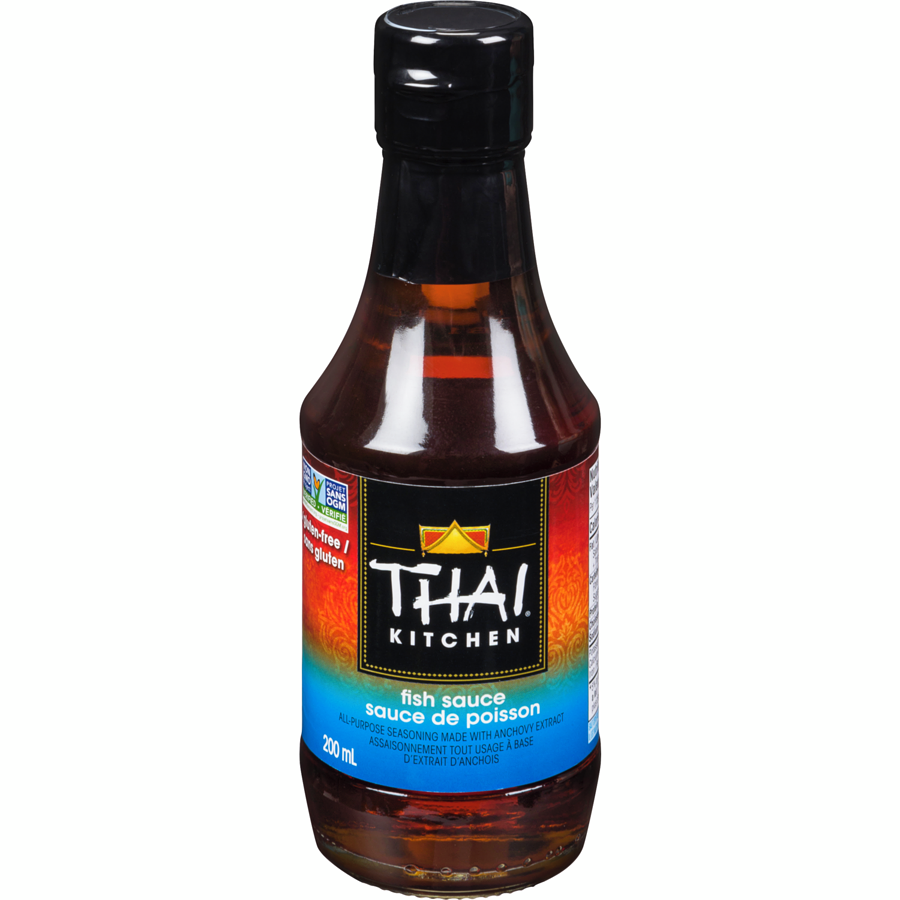Fish Sauce

Fish sauce is like the salt of Southeast Asian food, used to bring out the flavors in food with its unique umami kick.
While it might smell strong straight from the bottle, it transforms dishes with just a few drops, adding a depth of flavor that's hard to replicate with any other ingredient.
It's a liquid condiment derived from fish that have been allowed to ferment. It's a staple ingredient in many cuisines, particularly Thai and Vietnamese cooking, where it's used to add depth, saltiness, and a savory taste to dishes.
Fish sauce is made by mixing fish, usually small fish like anchovies, with salt and letting the mixture ferment for several months to years. During this time, the fish break down, and the resulting liquid is extracted, filtered, and bottled as fish sauce.
The process of making fish sauce is relatively simple. Small fish and salt are layered in large barrels. The ratio of salt to fish is crucial for preventing spoilage and encouraging fermentation. The mixture is left to ferment, often in the sun, which speeds up the process. This can take anywhere from a few months to several years.
After fermentation, the liquid that naturally seeps from the fish is collected. This is the raw fish sauce. The collected liquid is often filtered and sometimes pasteurized to ensure it's safe to eat and to improve its clarity and flavor. Due to it's strong, pungent smell, use it sparingly in your recipes.
Despite its strong odor, when mixed into dishes, it imparts a rich umami flavor without overwhelming with a fishy taste. Here are some common uses: It's used as a seasoning in stir-fries, soups, and stews, enhancing the overall flavor profile of the dish.
Fish sauce serves as a foundational ingredient in many dipping sauces, marinades, and salad dressings. A few drops can be added to dishes as a substitute for salt, giving a burst of umami. Fish sauce is high in sodium, making it a potent flavor enhancer but also something to use in moderation, especially for those of us watching our salt intake.
It also contains some protein and vitamins and minerals derived from the fermented fish, though fish sauce is typically consumed in small amounts, it's not likely to contribute significantly to daily nutritional value.
When buying fish sauce, look for a brand with a clear, amber color and a pleasant, though strong, aroma. Fish sauce should be stored in a cool, dark place, such as a cupboard or pantry, and can last for a long time due to its high salt content, which acts as a natural preservative.
Quick Picks
Chef's Level
Tips and Hacks
To handle prickly pears without getting pricked by the tiny thorns, use kitchen tongs or wear gloves. You can also roll them in a cloth or use a brush to remove the thorns, making sure you have a pain free experience as you prepare this exotic fruit.
Tell me more...
Featured Offering
Espresso Chocolate Fudge
Recipe of: Canada

Filed Under: Candy
Prep Method: Refrigerate
Base: Espresso
Made with: 12 Ingredients
Keldons Cookery © 1998 - 2026 All rights Reserved | Secured with SSL
Cook what you eat. Love what you cook!
This is day 58 of 2026